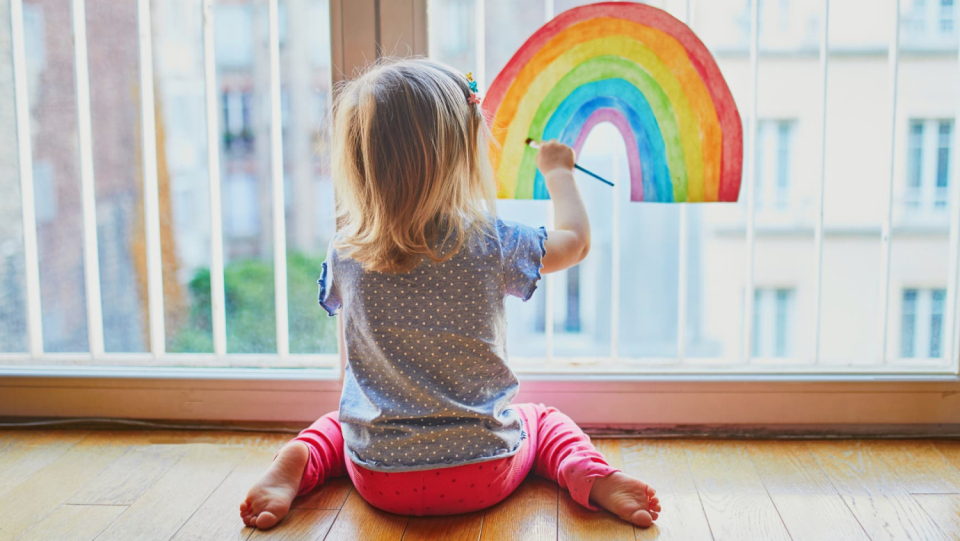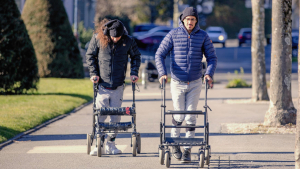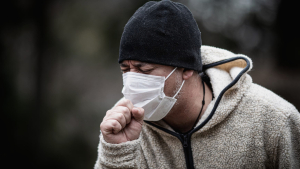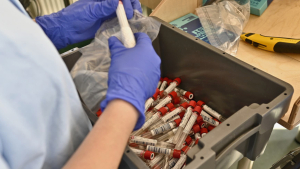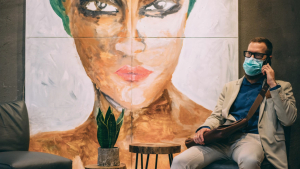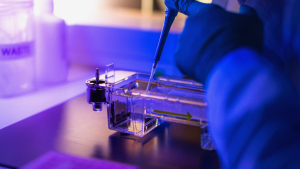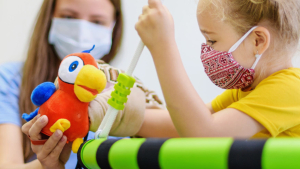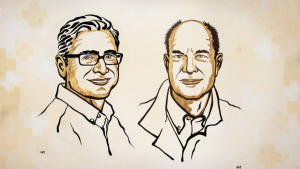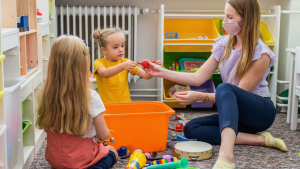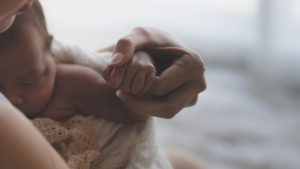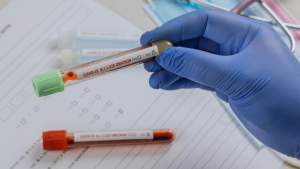During the first lockdown, five-year-old Yannik* spent a lot of time at home because his kindergarten was closed due to coronavirus restrictions. Then his mother noticed that her son kept a saliva thread running out of his mouth. When she asked him why he didn't just swallow, Yannik replied that his spit was evil. "There are so many viruses in there, maybe even the stupid corona," explained the five-year-old. Even with a lot of persuasion, his mother often failed to persuade him to swallow; She regularly had to wipe away his saliva with a rag. After a few weeks, she made an appointment for Yannik with a child psychologist who worked with him to overcome his fears.
The 16-year-old Christian* was not so good during the pandemic. She lives in difficult family conditions, her father is rarely at home. If he still comes home, he often becomes palpable towards the student and her mother. Even before Corona, Christin was in psychological treatment for depression. When her school was closed, her dance course failed and it became more and more difficult to meet friends, her mental problems increased. "I often felt extremely overwhelmed," says the vocational student. "How should I concentrate on learning when my father roars around?" As a result, Christin smoked grass more and more, spent a lot of time with social media and computer games. It was often difficult for her to get up to go shopping.
A third of kids exhibit behavioral changes.
The stories of Yannik and Christin are just two examples of how pandemic has changed the life of children and adolescents. For many, psychological problems have increased since the outbreak of the virus, and new ones have arisen in others. According to studies, some children are more restless than before and make it worse. They are emotionally unstable, cry faster and rather withdraw, reports Silvia Schneider from the Ruhr University Bochum. The sleep of the little ones is also impaired, they wake up more often at night. "All of these are indications that the children are burdened," explains the professor of clinical child and adolescent psychology in an interview with the Federal Ministry of Education and Research. "We assume that about a third of the children will react to this stress with negative changes in behavior."
A study by Christian Dohna-Schwake and his team has also caused horror. As the head of the pediatric intensive care unit of the Essen University Hospital reported in a video call in 2021, suicide attempts among children and adolescents have increased sharply: Between mid-March and the end of May 2021, the researchers analyzed data from 27 pediatric intensive care units and counted 93 suicide attempts – about four times as many as in the previous year and three times as many as in 2019. before the pandemic. However, this was not a reliable longitudinal study.
The load slightly lessens but remains high.
The COPSY study by the Clinic and Polyclinic for Child and Adolescent Psychiatry, Psychotherapy and Psychosomatics at the University Medical Center Hamburg-Eppendorf takes a closer look at the situation. For the third time, it was the first population-based longitudinal study to survey children and adolescents nationwide; the researchers published the latest results in February 2022. Despite open schools and now accessible leisure activities, the number of children and adolescents who feel psychologically burdened by the corona pandemic remains high, says study director Ulrike Ravens-Sieberer. »Although the psychological well-being and quality of life of children and adolescents have improved slightly, many still suffer from psychological abnormalities.« Children and young people from socially disadvantaged and poorly educated families are particularly affected.
This is also confirmed by Tobias Meister, deputy head of the adolescent station at the district clinic in Obermain in Franconia, where 16 to 23 year olds are treated psychiatrically. "With Corona, our waiting list has doubled - now the young people and young adults have to be patient for three to six months until they get a place," says the psychological psychotherapist. Only 20 patients can be treated in the clinic, 60 waiting.
In the initial consultation and later in the approximately twelve-week therapy, Meister is currently increasingly diagnosing so-called internalizing disorders, i.e. social phobias, anxiety and depression. Not so much have increased externalizing disorders such as ADHD or aggression. There is also currently no sharp increase in the severity of mental illnesses – but more children and adolescents are affected. "But these are only the observations of our clinic, which is located in the countryside in Kutzenberg – not in a big city."
Utilize social media and cannabis to get away from reality
The psychologists at the clinic also report that cannabis, alcohol and media use has increased among older adolescents and young adults – including students who often had to move back in with their parents. "There is a strong tendency among young people to tune out normality and immerse themselves in a more exciting, exciting world where more is happening than at home in lockdown," says psychologist Meister.
Whether a child reacts to the changed reality of life with psychological abnormalities depends, among other things, on his environment. Fortunately, the majority of the adolescents put the effects of the pandemic away surprisingly well and manages the stress well. "Children and young people have learned to deal with pandemic," says Ulrike Ravens-Sieberer. The main decisive factor is how mentally healthy the parents remained during this time. "Family is and remains one of the most important resources to get through pandemic well."
A slightly positive trend was shown at least in the third survey wave of the COPSY study. For example, the well-being of the respondents increased somewhat with the end of strict contact restrictions, the opening of schools and playgrounds and the resumption of sports and leisure activities. The children and adolescents reported that they would now argue less in the family, that there were fewer problems at school and that the relationship with their friends had improved again. In addition, physical symptoms such as falling asleep and irritability have been reduced and media consumption has decreased, reports Ravens-Sieberer.
However, the survey took place in September and October 2021-before the start of the Omikron wave, which again brought restrictions. In order to examine the current loads, the fourth round of survey is now starting as part of the Copsy study.
The pandemic may have provided temporary relief for some.
Tobias Meister believes that the pandemic could even have helped a few patients develop a more relaxed way of dealing with their mental illness: »Students who, for example, developed social fears in terms of their studies of their mental stress, «says master. "Patients and patients with anxiety diseases or phobias even benefited at short notice." Nevertheless, social withdrawal, of course, has the risk that those affected will no longer face their fears and that the return to everyday life is now even more difficult.
Ulrike Ravens-Sieberer calls for lessons to be learned from the pandemic now so that the same mistakes are not repeated in the next crisis. "We have to rework structurally and, for example, train teachers and educators in a targeted manner. They need the skills to function as a kind of early warning system – they are the ones who are closest to the children and adolescents and can react when mental health is threatened." There must be a transnational concept for homeschooling and quickly available counselling options. However, Ravens-Sieberer fears that the suffering of children and young people will quickly be forgotten as soon as normality returns. In the next pandemic, they could therefore be among the losers again.
* Names of the children and adolescents changed by the editorial team







